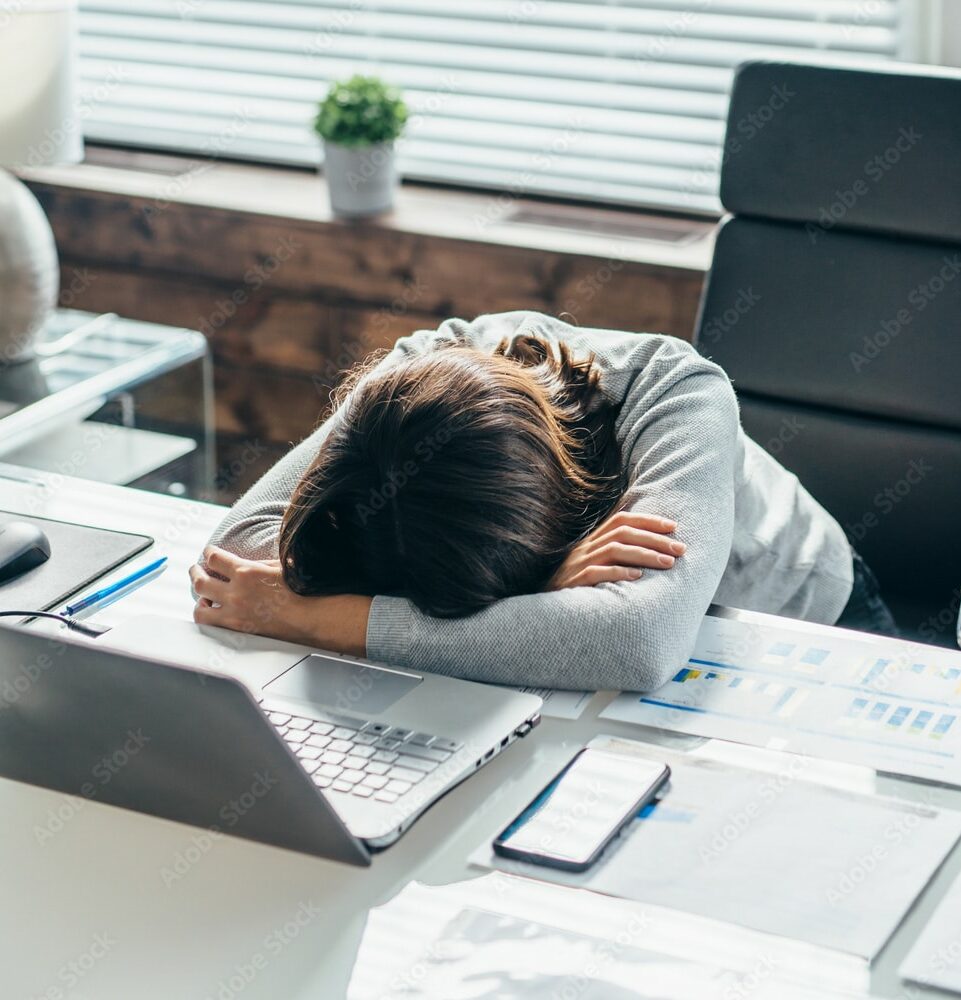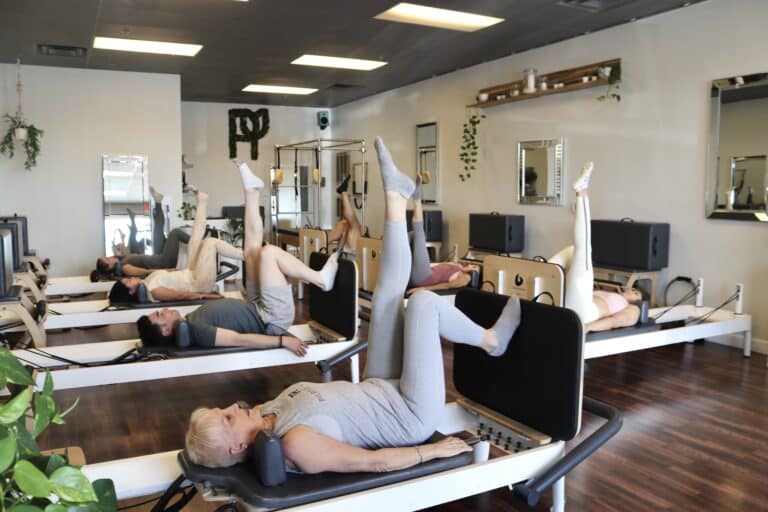How Long to Recover from Burnout? Learn Effective Recovery Strategies

In the hustle culture of today’s fast-paced world, burnout is becoming more and more prevalent. If you’ve experienced burnout, you know how rough it can be. When you finally realize you’re burned out, the first thing you want to do is make it stop ASAP. So how long will it take you to recover from burnout?
The short answer is, anywhere from 3 to 12 months. There’s no one-size-fits-all, and recovery depends on many factors. Below, I’ll offer some methods that have worked for me.
Burnout isn’t just stress
Although burnout has similarities to stress, it is quite different. Stress is a reactive state that occurs when you’re over-engaged in your work or emotions. With stress, there is usually a sense of hyperactivity that leads to anxiety and paradoxically a lack of energy.
In contrast, burnout is when you’re disengaged.
Burnout is defined as a state of complete mental, physical, and emotional exhaustion.
Burnout takes its toll on you not just physically, but emotionally. Burnout can make it hard to engage in normal activities. It can lead to a sense of hopelessness and helplessness, along with lost interest in the things that used to bring you joy. Motivation is low or even lost completely. Burnout leads to a feeling of depression.
We all know that the first step to solving a problem is admitting you have one. Once you acknowledge you’re burnt out, then you can take action to fix it. You can and will recover from burnout if you make your recovery a priority. It’s important that you recognize the signs of burnout so that you won’t burn yourself out again.
How to tell if you’re burnt out? You might experience all or some of these signs:
- You’re irritable.
- You hate your job.
- You’re exhausted.
- You’re cynical.
- You have a lack of interest.
- You’re negative.
- You’re depressed.

How long does it take to beat burnout?
Depending on the person, beating burnout can take from a few months to a year. But the more you protect your energy, the faster your healing process will be. Recovery time also depends on how severe your case of burnout is. Of course, the more severe your burnout is, the longer it could take to recover. The good news is, you can fully recover from burnout.
The fastest way to recover from burnout ASAP is to go all in on yourself.
Of course, that’s not available to everyone. If you can take a sabbatical or quit your job like Julia Roberts’ character does in Eat, Pray, Love, then I would say do it! When I was recovering from burnout, I went all in on my healing. But also, it takes time to burnout so recovering can also be gradual. Even if you can’t totally reset your life, there are incremental steps you can take along the way. Ultimately, the way to recover from burnout is to focus on self-care and create boundaries.

Recovering from Burnout ASAP (Without Quitting Your Job)
Find support
Seeking support is one of the best things you can do that will help you recover from burnout faster. You can speak to a therapist or a life coach who can help you, listen to you, and give you actionable tips to help you heal. They’ll help you recognize patterns and things in your life that may not be healthy for you and may be contributing to your burnout. They can help you eliminate stressors and give you ideas on how to take care of yourself.
It’s also important to surround yourself with friends and family members who are going to support you on your journey to recover from burnout. This means being around people who recognize that now is a time for you to put yourself first, and people who understand you might choose to take a nap or a bath rather than going out with them. A supportive network enhances the healing process.
Setting boundaries
Recovering from burnout requires you to protect your energy and involves recognizing the importance of saying no to demands and commitments that don’t align with your healing process. So another important factor in a speedy and long-term recovery from burnout is creating boundaries with the things that lead to your burnout in the first place.
Boundaries are not about shutting the world out, but about safeguarding your wellbeing so you can show up fully in the parts of life that require your attention. Boundaries help you prioritize what truly matters, reducing the feeling of being overwhelmed and allowing you to focus on recovery and wellness.
Essentially, setting boundaries is the ultimate form of self-care, a critical step in healing from burnout and preventing its return. They are crucial in recovering because they ensure that you don’t overcommit yourself. By setting clear limits around your time and energy, you’re teaching others how to treat you, ensuring you’re not constantly pulled in every direction. This means saying no to extra projects when your plate is already full, or carving out non-negotiable me-time to recharge.
It’s crucial to listen to your body and respect its limits, giving yourself permission to rest when needed. Set boundaries with work, relationships, and social obligations, ensuring you don’t overextend yourself. It’s also vital to cultivate a supportive environment, both personally and professionally, that understands and respects your need for recovery. Surround yourself with people who encourage and uplift you, contributing positively to your healing journey.
Finding Balance
Another way to facilitate healing is to adopt a daily routine that includes meditation and hobbies to encourage resilience and a healthier, more balanced lifestyle. By safeguarding your energy and embracing self-care as essential, you pave the way for a quicker recovery and a more fulfilling future, where well-being is a priority.

Prioritizing self-care
Prioritizing your self-care is not just beneficial; it’s a critical component in the journey of recovering from burnout. This means deliberately making choices that nurture your mental, physical, and emotional health.
You need to recharge mentally, physically, and emotionally after burnout so that you can properly function. Whenever possible, choose activities that replenish rather than drain you. For example, go on a walk with a friend rather than meeting at a bar. Some other good self-care activities to replenish you are things like reading, practicing yoga, indulging in a relaxing bath, or spending time in nature. These acts of self-care contribute significantly to your overall well-being.
Ultimately, the emphasis on self-care and protecting your energy is about honoring yourself and recognizing the need for a sustainable pace of life. This approach not only aids in your recovery from burnout, but also lays the foundation for a more balanced and fulfilling life moving forward. When you do this, you’ll ensure that you don’t burnout again.
Sleep is essential
Normally when you’re burnt out, you’re exhausted, so you need to let yourself sleep.
You may need to sleep longer than normal to play catch up. Your body heals itself during sleep, so let yourself rest. Sleep is a critical part of self-care. Another important part of self-care is eating well. When we’re overwhelmed and stressed, we tend to make poor food decisions–like going through a drive-through instead of cooking dinner. Feeding your body nutritious food will help you start to feel better and function well. Exercise is another great way to recover from burnout. Exercise releases endorphins and helps you heal the stress cycle. The more you invest in your self-care, the faster your recovery will be.
Change up your routine
The first thing I did after burnout was to change my mornings. I went from rushing out the door to being consistent with my morning routine. A morning routine lets you start your day with a ritual. My favorite morning rituals are journaling and meditation. You can download my free morning ritual guide to get a detailed ritual plan. Starting your day with a morning ritual will help you tap into your subconscious mind, clear your head, and start your day with success.
Meditation
Meditation can be a game-changer in recovering from burnout. Meditation allows you to hit pause on all the stress and noise in your brain. It reduces stress hormones and gives you a sense of peace. Meditation boosts mindfulness, which is like giving your thoughts a chill pill, making you more aware of your needs and boundaries. Plus, it can improve your sleep quality, which is pretty much the holy grail when you’re burned out. Meditation also enhances your overall mood and emotional resilience, making you less likely to snap at stressors. Meditation can help you bounce back from burnout and start feeling like a human being again.
Practice Gratitude
Gratitude can be a surprisingly powerful tool in the arsenal against burnout. A gratitude practice is acknowledging and appreciating the things in your life that you’re grateful for. My favorite gratitude practice is to write down 10 things I’m grateful for in my life or from the day before.
Practicing gratitude shifts your focus from what’s draining you to what’s enriching you, kind of like choosing to see the glass half full instead of bone dry. By recognizing and appreciating the good stuff—big or small—you’re essentially rewiring your brain to spot the positives, which can boost your mood and lower stress. This practice can transform the way you view your daily grind, making it more about meaningful experiences and less about just getting through another day.
Plus, gratitude can improve your relationships because, let’s face it, nobody wants to be around a chronic complainer. It makes you more empathetic and less aggressive, even when under pressure. In essence, sprinkling a little gratitude into your day is like giving your worn-out self a dose of feel-good vibes, making the path to recovery from burnout a bit more bearable and a lot more joyful.
Recovering from burnout is possible.
With the right approach and tools, you will heal yourself and feel better again. Prioritizing yourself and creating boundaries are essential to your healing. After burnout, practicing self care and a new way of living will be a big change.

It’s going to take time to get used to and build new habits. Make small incremental changes that you can stick with. Be compassionate with yourself on your journey to recovery. And make sure to celebrate the little victories along the way.
If you’re looking for some self care tips, check out my ideas and activities or read Wellness First to learn how to prioritize your wellness over everything else. If you’re seeking professional help, head over here to find locals in your area.
Want to learn more about taking the time to prioritize your wellness? Check out my workshop, Sunday Wellness. In just 45 minutes you’ll learn the keys to prioritizing wellness and to helping you live a more meaningful life.
**Please Note: These are my opinions and suggestions. While these methods worked for me, this content is intended for informational purposes only and is not intended to substitute care from a medical professional.






